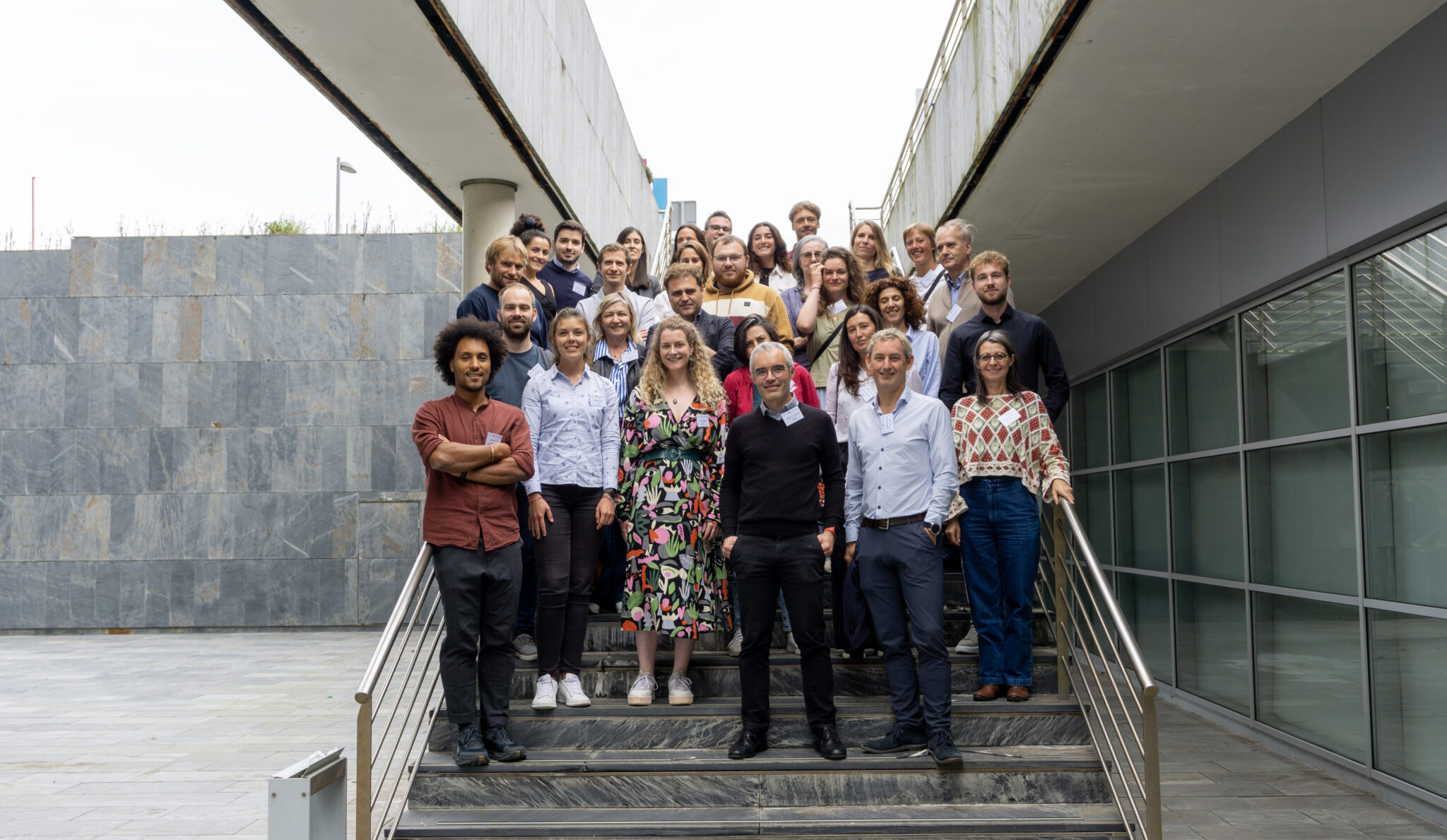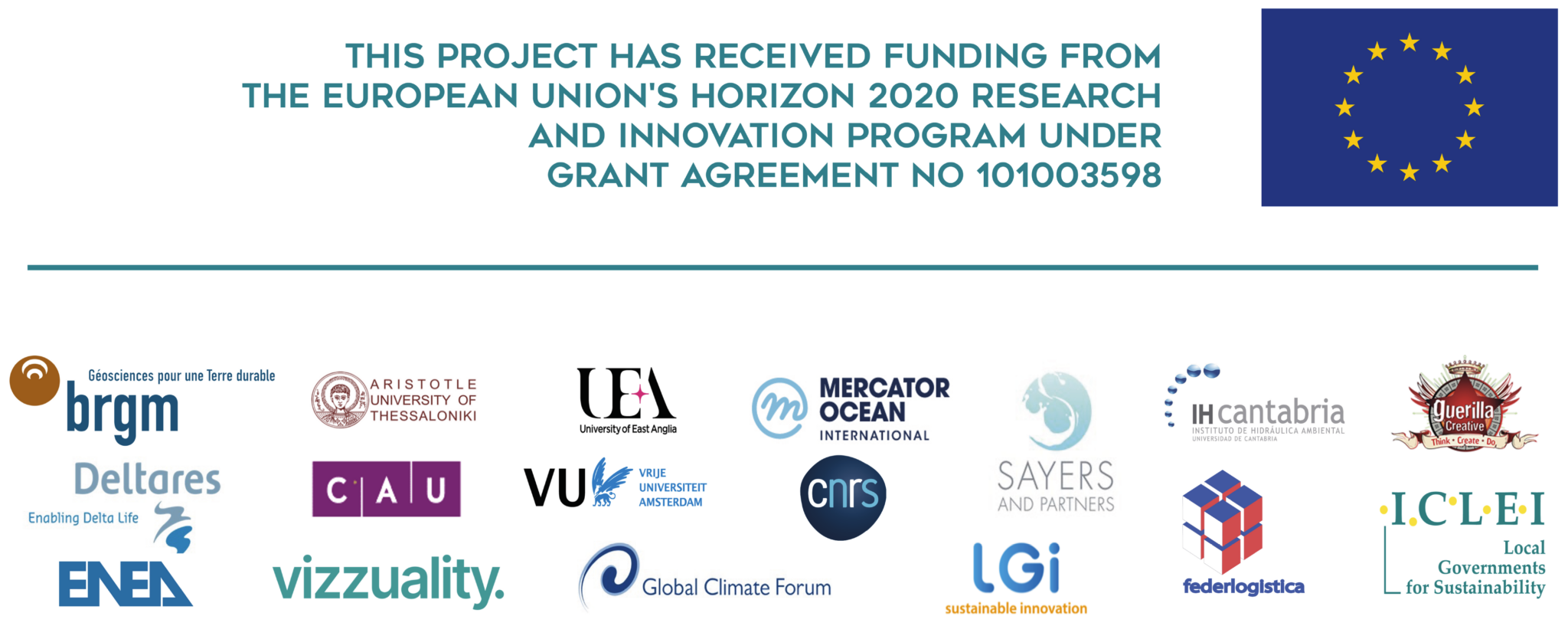IHCantabria hosts the annual workshop of the CoCliCo project

Partners participating in the third annual workshop of the European project CoCliCo
This workshop brings together representatives from the institutions participating in this European project to analyze the progress of the different work packages, to visualize the information generated in the CoCliCo platform and to assess the project’s legacy
From October 8 to 10, 2024, the Environmental Hydraulics Institute of Cantabria(IHCantabria) will host the Third Annual workshop of the European project Coastal Climate Core Services (CoCliCo).
This event “will bring together representatives from the institutions participating in this project – including the University of East Anglia, United Kingdom; the Universidad de Cantabria, Spain; Bureau de Recherches Géologiques et Minières (BRGM), France; Deltares, The Netherlands; Sayers and Partners LLP, United Kingdom; and the Global Climate Forum EV, Germany – to analyze the progress achieved in the different work packages; in addition to visualizing the information generated in the CoCliCo platform and assessing the project’s legacy,” says researcher Alexandra Toimil
The CoCliCo project is funded by the European Union’s Research Programme H2020 “Societal Challenges – Climate action, Environment, Resource Efficiency and Raw Materials” programme, whose implementation period is from September 1, 2021 to August 31, 2025. Its objective is to develop an open web platform to facilitate decision-making on coastal risks. Its implementation is coordinated by BRGM, a French public institution of reference in the application of earth sciences in the management of soil and subsoil resources and risks.
At IHCantabria, the principal investigators (PIs) are Iñigo Losada and Alexandra Toimil, who are in charge of the organization of the Third Annual CoCliCo workshop. The First Annual workshop was organized by BRGM in Orleans, France, in October 2022. The Second Annual workshop was organized by Deltares in Delft, The Netherlands, in October 2023.
CoCliCo project: towards an open platform for coastal risk management
The purpose of the CoCliCo project is to provide the European Community with the necessary coastal climate services that integrate the most advanced information available on climate projections of marine variables, in order to analyze coastal risks and to implement the most efficient and sustainable adaptation measures. One of its objectives is to foster dialogue between researchers and decision makers, and to facilitate the co-design of tools that respond to the specific needs of each local context, in terms of flood and coastal erosion risks.
During this week’s workshop, the progress achieved in the development of the CoCliCo platform will be presented, as well as the databases and projections on sea level and waves, which have been developed by IHCantabria and other project partners. The main risk factors on European coasts will also be discussed and adaptation strategies will be evaluated, considering future impacts of climate change. “There will also be a space for young researchers to share the work they are doing in their doctoral theses, in the framework of the CoCliCo project,” adds researcher Alexandra Toimil.
The role of IHCantabria in the development of the CoCliCo project
In this project, IHCantabria leads the climate Work Package and, together with the University of East Anglia, co-leads the coastal hazards work package. The first package is led at IHCantabria by Melisa Menendez, head of the Marine Climate and Climate Change Group. This package is related to sea level projections; its objective is to develop historical databases and multi-model projections that allow the analysis of changes in mean and extreme sea level conditions in Europe. It includes regional projections covering land ice mass loss, local dynamics and other key factors.
In the second Work Package, IHCantabria collaborates with the University of East Anglia in the creation of a flexible framework to analyze coastal erosion and flood risks in an integrated way along the European coast. The IHCantabria team is co-designing climate services to be developed within the framework of the project, as well as participating in the creation of an exploratory web tool, which will serve the needs of users.
Towards a safer future for Europe’s coasts
Flooding and coastal erosion are of great concern to millions of people in Europe; they affect not only the health and safety of coastal communities, but also critical infrastructure and services located in vulnerable areas. The CoCliCo project aims to address these challenges by developing a coherent and decision-oriented tool to facilitate the identification of risk areas and the implementation of adaptation measures. In this context, the workshop being held this week at IHCantabria offers the opportunity to share experiences, methodologies and innovative solutions to improve the resilience of coastal communities to climate change.
For more information on the CoCliCo project, visit https://coclicoservices.eu/




